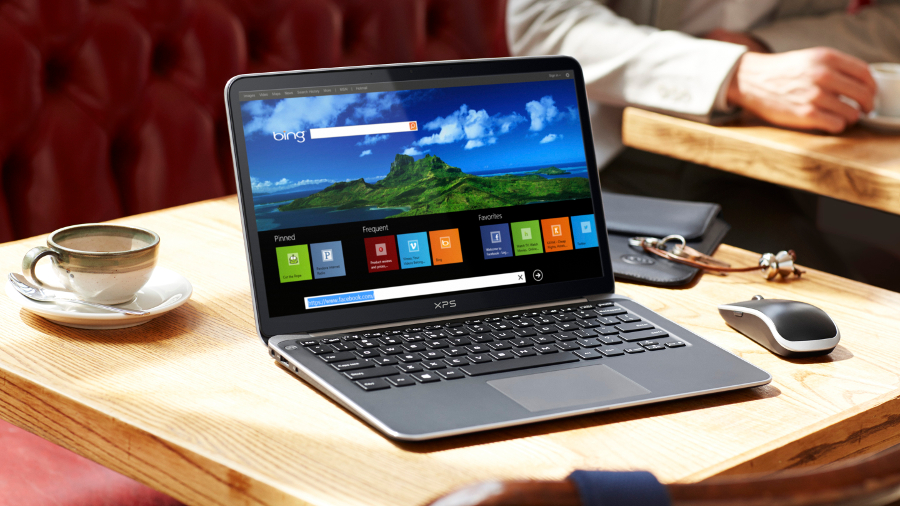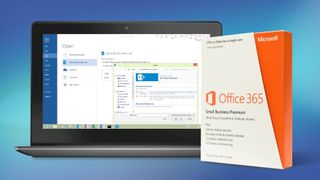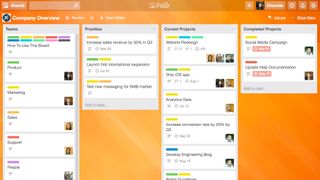
Making a break from the world (or the workplace) and hitting the road (or sofa) may be an exciting prospect, but the reality of sustaining yourself while on the move makes it a difficult choice to make.
The lifestyle of the digital nomad, though, is becoming ever more realistic. Employers are looking to free up desk space, the internet makes many tasks trivial to complete wherever you are, and remote working is becoming a highly respected way to motivate staff.
If you’re interested in grasping employment freedom, we’ll take you through the things you’ll need, and the things you’ll need to do, to make a success of a remote working lifestyle. And even if your employer isn’t so keen on the idea of letting you do your own thing, you’ll discover there are options available to you.

1. Get a laptop
Although many organisations will issue company computers to remote workers – and, indeed, many will frown upon you using your own IT equipment in what is ostensibly their workplace – you’re going to want to have your own solution for getting stuff done wherever you are. Don’t skimp by trying to work on a phone or tablet, though. Get a proper PC.
It might seem tempting to pick a do-all powerhouse of a machine, or to invest in a high-end MacBook. We’re certainly not going to stop you from doing that, but consider what you’re going to be doing with this machine – it’s going to spend a lot of time in a bag on your shoulders as you hit up your next spot, and it’s going to get bashed around in there too. So from that perspective, ideally you should get something light, cheap and sturdy.
Our quick pick is Dell’s Inspiron 11 3000 series. It’s small, weighs very little, and has astonishing battery life. A 2-in-1 model, which converts to a tablet, could cost you as little as £249.

2. Get a good 4G package
Working on the move, particularly if you’re rocking a lower-powered laptop, requires flexibility and being easily contacted. It also means (most likely) maintaining an online connection to your office – either to a file server or to a virtual machine with the tools you need to get things done – so a consistent internet connection is a must.
Are you a pro? Subscribe to our newsletter
Sign up to the TechRadar Pro newsletter to get all the top news, opinion, features and guidance your business needs to succeed!
When you’re out of Wi-Fi reach, you’ll need your laptop connected to a mobile network, either via a tethered phone or a 4G modem. The real key here is to get yourself a data deal that’s not going to financially ruin you. Many networks do seasonal offers, although Three generally seems the best value on a regular basis. If you want to check out the best mobile broadband deals currently going, we’ve highlighted ten top-notch offerings.
4G coverage can be spotty, however, so we’d also recommend signing up to a cloud Wi-Fi service like BT Wi-Fi or The Cloud, just in case you’re caught in the lurch.

3. Move to online tools
Build yourself a toolkit of online tools so that you can get your job done no matter what hardware you’re using. Sign up for a webmail service, get yourself used to an online office package like Google Docs, Office 365 or – if you need more tools – consider a more fully-featured (yet slightly more clunky) service like Zoho Office.
There’s very little that you can’t do online. Even things like invoicing (try Wave) and photo editing (try Pixlr) are entirely possible – if you’re resourceful, you could probably even go full digital nomad with only a Chromebook to your name.
One crucial element we’d recommend to any work-anywhere enthusiast is some kind of remote desktop; grab Google Remote Desktop for Google Chrome and you’ll be able to get onto your main machine wherever you are.

4. Hit your goals
With the tools sorted, you’ll want to convince your employer to let you work remotely. If you’re a freelancer, this is unlikely to be a problem, but many larger businesses are still wary of allowing employees off into the wild for a number of reasons. Taking company data offsite could potentially be a risk. There’s extra infrastructure required. And remote workers are not, frankly, trusted to do their job properly without a watchful eye being kept on them.
It may be up to you to convince your manager that you can do the job. You might have to campaign with HR. You’ll definitely have to prove that you’re an awesome worker before you make the move to remote working, hitting your goals and targets early and hard; perhaps try a to-do list like Trello to keep your work in order. And you’ll need to double-down on your efficiency after the jump to prove that your employer has made the right choice.

5. Get a flexible job
If your employer really isn’t going to budge on work flexibility, it’s probably time to find a career that will suit your intended lifestyle. Searching the usual job sites will likely come up with a few hits – particularly if you narrow your search by location, and select a term along the lines of ‘anywhere’ – but the true digital nomad is the master of their own destiny. If you want to do it right, you’re going to have to do it yourself.
The primary direction of work-anywhere employment is a creative one. The most successful travelling workers are writers, artists, designers, coders and the like – not entirely coincidentally, these are also careers that involve tasks that can be performed anywhere you have a computer. If you’re skilled in these areas, check out our guide to becoming a freelancer – it’s a risky move, but one you won’t regret when you’re laid back, creating your latest opus on a beautiful beach.

6. Join a scheme
If all else fails, and you’re someone with a lot of potential (and a little cash saved up already) you may be able to join a scheme which will give you a bit of help. Digital Nomad Academy offers up courses, forums and video tutorials on setting up global businesses that can be run from anywhere, with a money-back guarantee if you’re not satisfied.
More extreme are services like Remote Year which sends a handful of people to a bunch of worldwide locations over the course of a year. It’s a bit more of a forced path – you’ll have to be willing to drop everything and go travelling, and there’s a fixed cost to join the scheme – but it could be a great world-working experience. Even if you’re not going, perusing the blog should offer up some good ideas for your own adventures.













